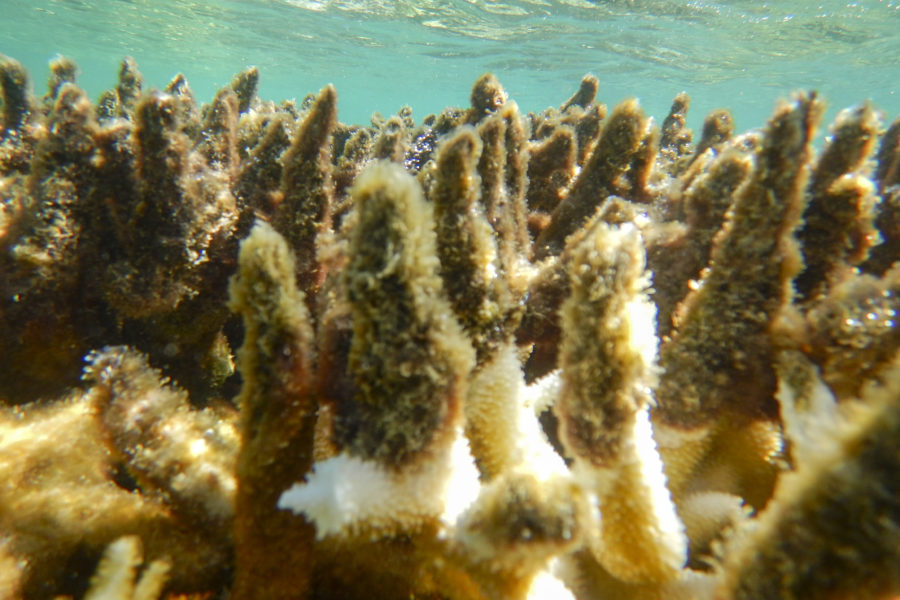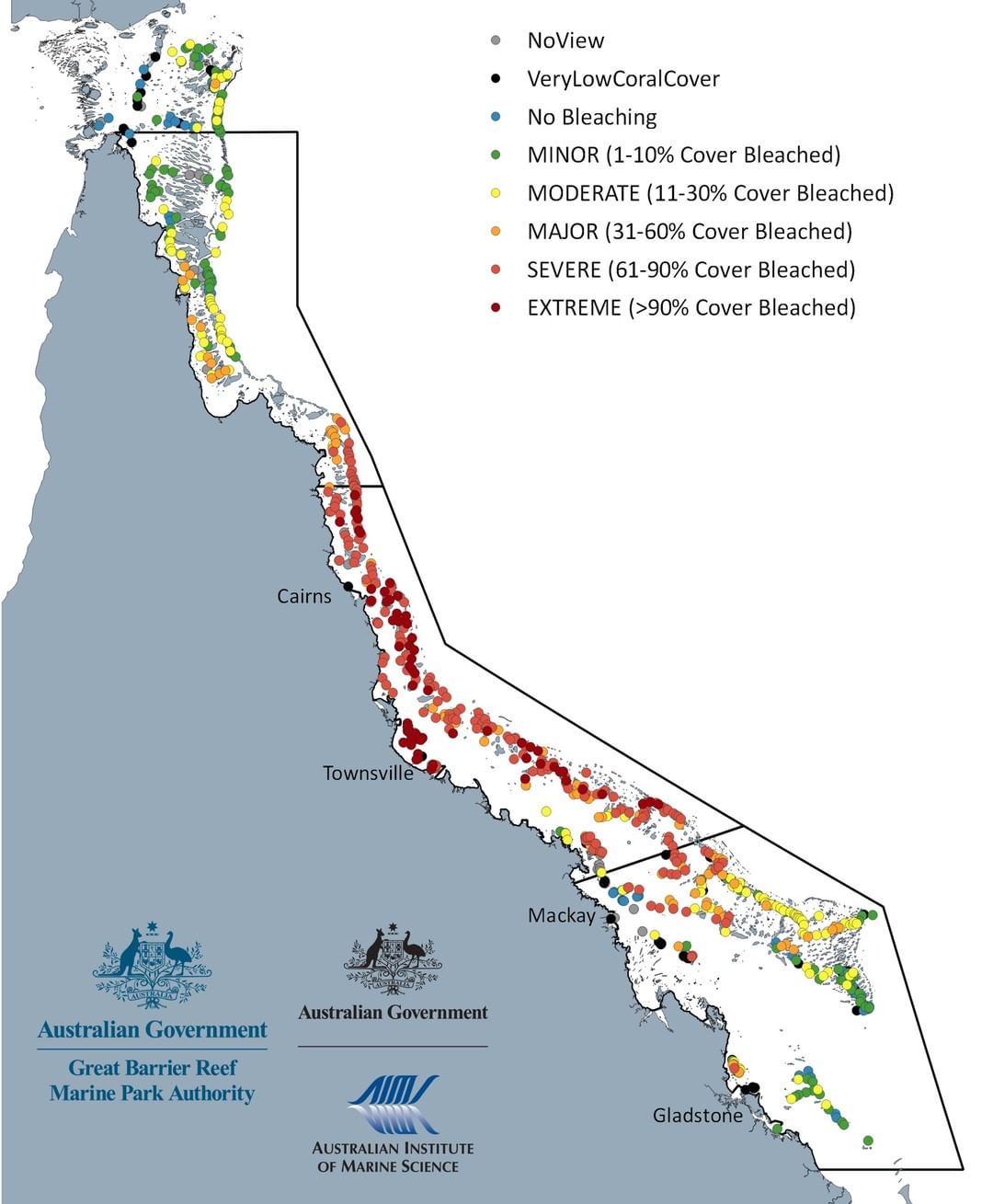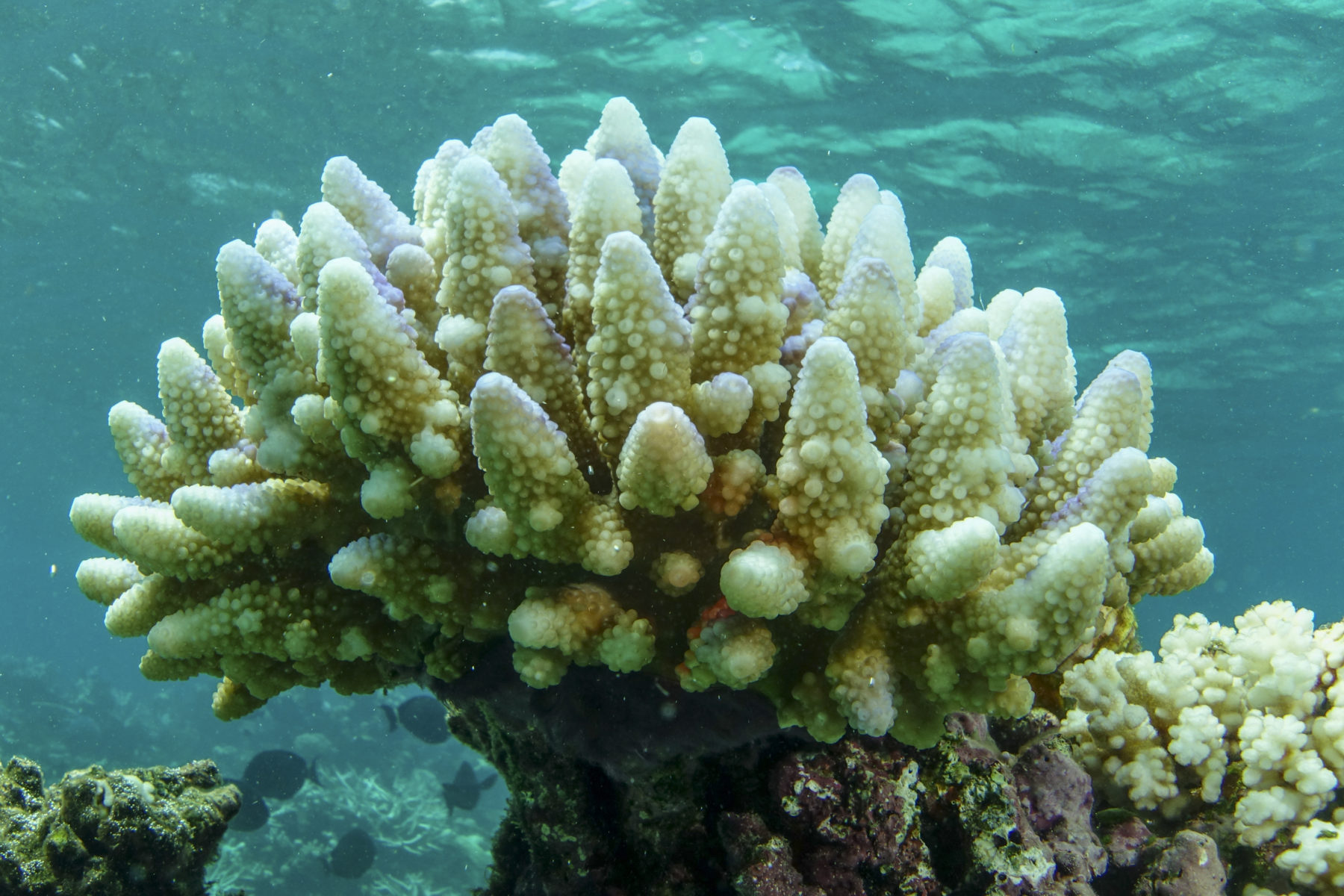Great Barrier Reef: 91% of reefs surveyed affected by coral bleaching over 2021/2022 summer

A damning report from the Great Barrier Reef Marine Park Authority confirms the heartbreaking extent of this year’s Great Barrier Reef mass coral bleaching event.
The Reef Snapshot includes extensive aerial observations, showing widespread bleaching that has affected the northern, central and southern regions of the Reef. The severity ranges from minor to severe. The majority (91%) of the 719 reefs surveyed have suffered some degree of bleaching.

The GBR has suffered four mass bleachings in just the past seven years (2016, 2017, 2020 and 2022). This is the first event to occur during a traditionally cooler La Niña period.
The reef’s mean sea surface temperature during the period was recorded at up to 0.4C above average in some parts. Bleaching of various severity was detected and some parts of the reef were unaffected.
“Compared to previous summers, cumulative impacts were limited this summer, with one major pressure, a marine heatwave, dominating,” the report noted.
“It is important to note that bleached corals are alive, but stressed. Low or moderately bleached corals have a higher likelihood of recovering,” researchers said.
Dr Simon Bradshaw, Director of Research at the Climate Council, said: “The science is very clear, in order to protect the world’s reefs from total destruction, we must dramatically reduce emissions in the 2020s.”

Continued failure to tackle the climate crisis could mean the reef suffers bleaching every year from 2044. This would mean the loss of the reef and other shallow water reefs worldwide.
Scientists have repeatedly warned these ecosystems are at grave risk of mass bleachings and extinction.
The Climate Council’s recent briefing: “In hot water: Climate change, marine heatwaves and coral bleaching” highlighted that 2021 was the warmest year on record for the world’s oceans. The excess heat absorbed by the ocean in 2021 was equivalent to the energy of seven Hiroshima atomic bombs detonating every second.



